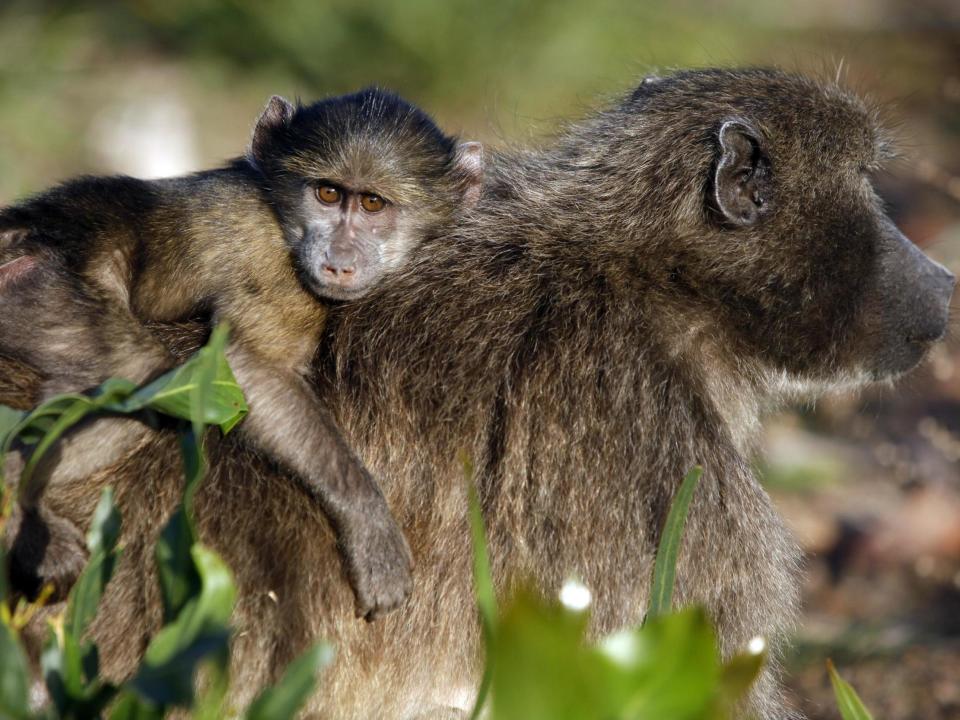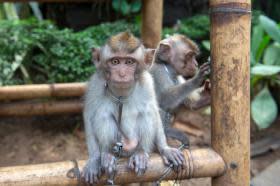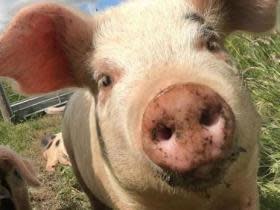British trophy-hunters legally killed 500 African monkeys and baboons in 30 years

British trophy-hunters legally killed and brought home the bodies of about 500 baboons and monkeys over a 30-year period which only ended two years ago, according to a new report.
Nearly 100 dead primates were imported into the UK from Africa in the nine years leading up to 2017, the Campaign to Ban Trophy Hunting (CBTH) concluded.
Some safari hunt firms even encourage customers to target monkeys and baboons with bows and arrows, increasing the chances of inflicting agonising injuries, the group found.
The organisation’s report was based on statistics from the Convention on International Trade in Endangered Species (Cites), which both exempts trophy-hunting from a ban on commercial hunting, and issues permits for it.
It exposed the death toll racked up by British hunters, revealing that 494 primates – 383 baboons and 111 monkeys – were imported into the UK from the 1980s until 2017, the last year for which figures are available.
Chimpanzees, whales, eagles, parrots and otters were also among “trophies” that hunters around the world took home, it found.
Wealthy hunters, mostly from the US, killed increasing numbers of species from 2007-2017, including captive lions, parakeets, sloth bears, flamingos, elephant tusks, trunks, ears and genitalia, the report stated.
Numbers of animals killed by some countries’ hunters have risen sharply in recent years, including Canada (216 per cent), Austria (40 per cent) and Belgium (56 per cent), although there were declines in Spain, Denmark and Norway.
Read more
Labour to ban pet monkeys
From 2008 to 2017, British trophy-hunters imported 98 primates including yellow baboons, chacma baboons and chlorocebus monkeys, from African countries such as Zimbabwe, South Africa,Zambia, Namibia, Mozambique, Botswana and Ethiopia, the wildlife watchdog’s own figures show.
Other targets include the critically endangered black rhino, polar bears, jaguar, wolves, wild cats and lynx.
Hunters even targeted the scimitar-horned oryx, which is listed as extinct in the wild by the IUCN, but is bred for sport on private hunting ranches.
http://players.brightcove.net/624246174001/default_default/index.html?videoId=5837728067001
Support free-thinking journalism and subscribe to Independent Minds
As a result, wildlife lovers are lobbying a meeting this week of Cites, asking it to stop issuing permits so that trophy-hunting would be outlawed globally.
Eduardo Goncalves, of the CBTH, told The Independent: “People will be bewildered to learn that trophy hunters shoot monkeys as well as better-known ‘trophy animals’ such as lions and elephants. They often live in close proximity to human habitations, so it is ludicrous to portray this as ‘sport’ hunting.
Read more
Pig-to-human heart transplants ‘one step closer’ after baboon success
“These are primates with whom we share over 90 per cent of our DNA. This is as close to murder as you can get. We literally shoot ourselves in the foot when it comes to trophy hunting, as all species have an important role in the ecosystem.”
Hunters spend tens of thousands of pounds on a luxury safari hunting holiday but the fee for shooting a monkey or baboon can be just a few pounds, he said.
“Some safari hunting firms even encourage trophy hunters to bowhunt monkeys and baboons. This increases the likelihood of painful, life-altering injuries,” he added.
The countries that are signed up to the Cites agreement are facing pressure as they meet in Geneva this week and next over trophy-hunting and a range of other wildlife issues.
A Cites spokesman said: “Cites seeks to ensure that any trade in wildlife (which can include hunting trophies) is sustainable, legal and traceable,” adding: “Clearly the parties (governments) have accepted that a certain level of trophy-hunting does not threaten the survival of these species.
“The range countries, which are generally poor, often argue that the income from trophy-hunting can be used to support conservation.”

 Yahoo News
Yahoo News 

